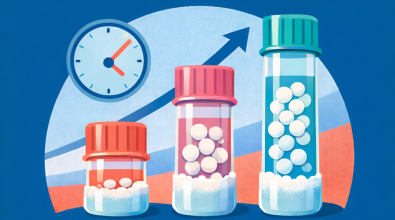
What really affects your AMH levels, according to our research
There’s so much mixed messaging out there about what affects fertility and how much—and so little of it is based in research. One of our goals is to expand the research around female fertility and fertility preservation, to improve the care and health outcomes for our patients and all patients.
Some of our latest research explores the impact of common lifestyle factors—namely, exercise, caffeine intake, smoking, and drug use—on anti-Mullerian hormone (AMH) levels. AMH is a hormone produced by the ovarian follicles, and your level is an indicator of how many eggs you have left (your egg count or ovarian reserve).
Our study looked at AMH levels and self-reported lifestyle factors in over 2,500 non-infertile women who came to us for a fertility assessment. Here’s what we found.
What affects AMH levels and egg count?
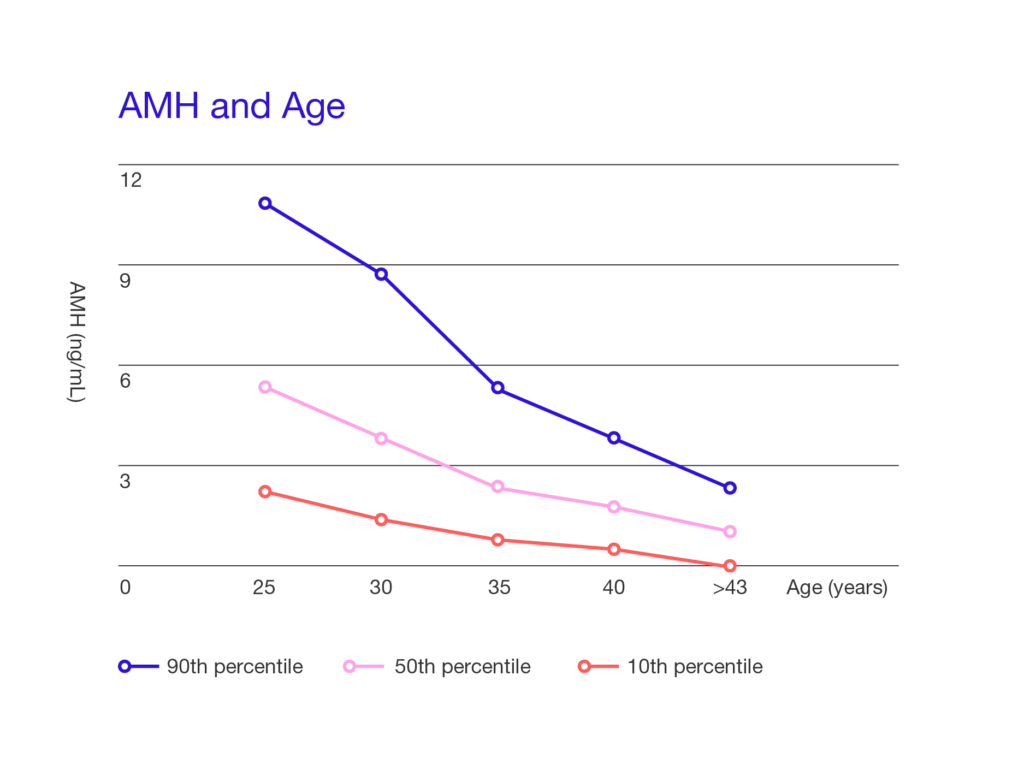
Age: Yes!
We’ve said it before and we’ll say it again: age is the number one factor affecting both egg count, which is measured via AMH levels, and egg quality (or the genetic health of your eggs). This was demonstrated once again in our research, which saw a predictable decrease in AMH levels across all lifestyle factors.
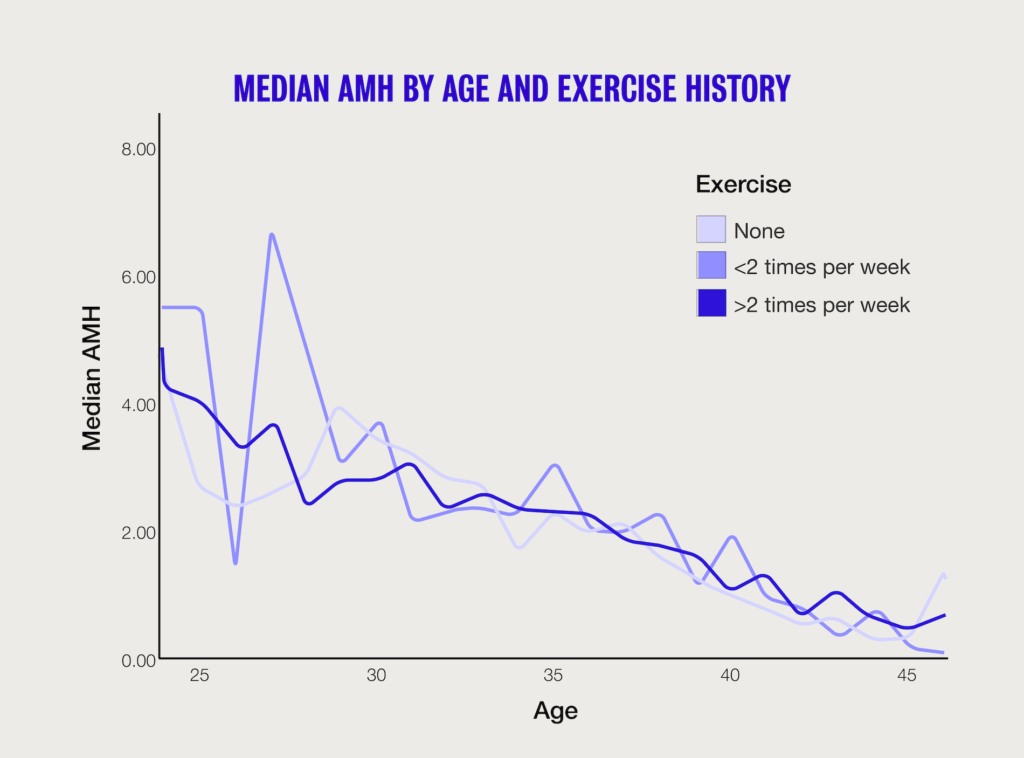
Exercise: No
While we obviously champion exercise as part of an overall healthy lifestyle, our research demonstrates that it doesn’t have a real impact on AMH levels. There was no significant difference in the median AMH levels for subjects who never exercised, those who exercised once or twice a week, and those who exercised multiple times per week.
Caffeine consumption: No
Here again, whether or not you consumed caffeine—and how much—did not have an impact on your AMH. Those who had zero, 1–2, or 2+ servings of caffeine per day had no significant differences in their median AMH, based on their age.
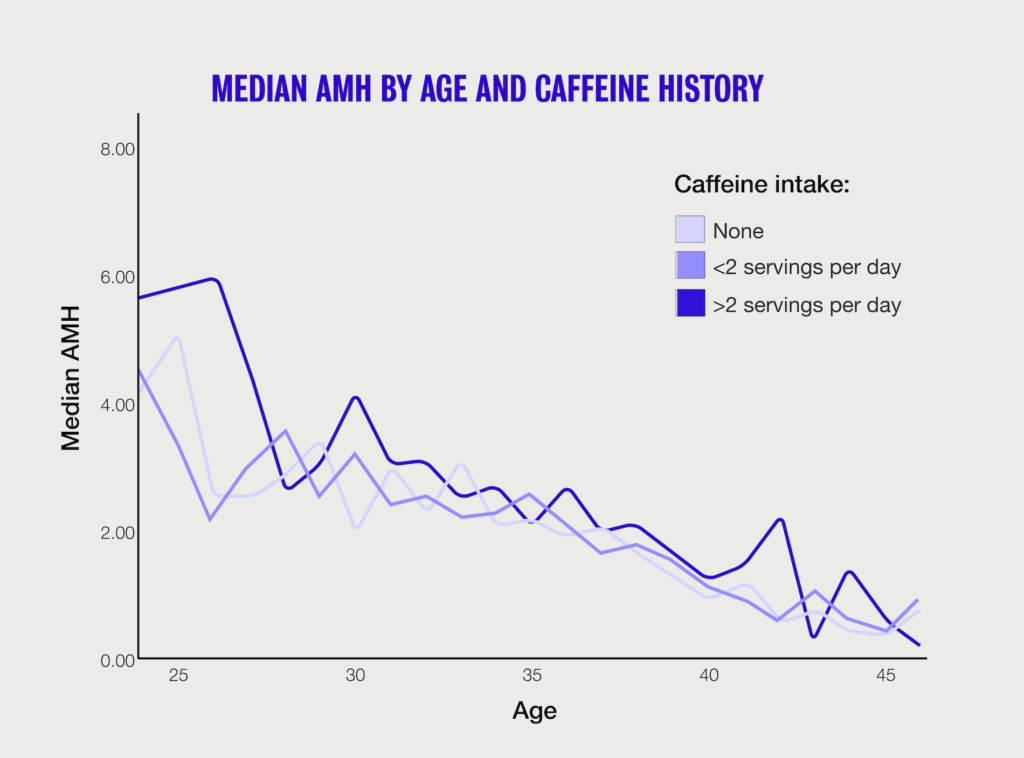
A note: We do recommend that those currently going through ovarian stimulation (like egg/embryo freezing or IVF) moderate their coffee consumption. That’s because coffee is a diuretic (meaning, it makes you lose fluids), and we want you to stay hydrated during your cycle. One cup a day is generally okay!
THC use: No
Those who currently use THC (the active ingredient in marijuana and many cannabis products) did not have a significant difference in their median AMH levels when compared to those their age who had never used any drugs.
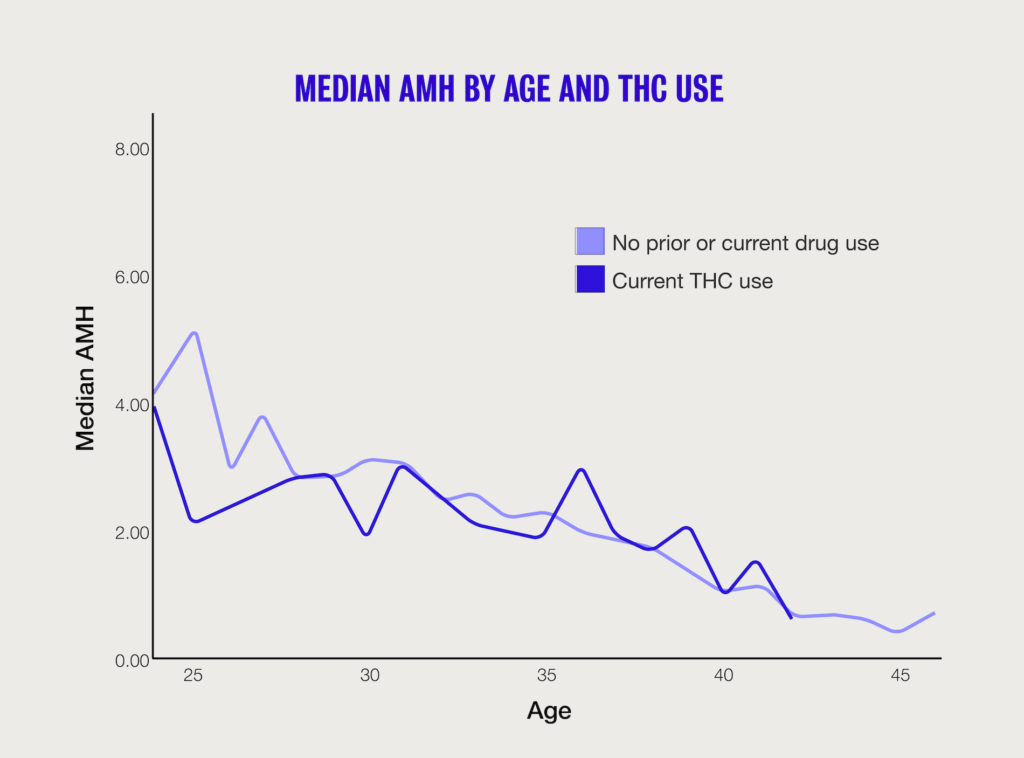
Smoking: Yes, though it wasn’t demonstrated in our research
To quote our director of research Dr. Maslow, “Cigarette smoking is a well-established exception to the above. In our dataset the amount of cigarette smokers was so tiny (thankfully) that we couldn’t actually appreciate a difference, [but] cigarette smoking is still definitely bad for health and fertility.”
According to many other studies (like this one, or this one, or this one), cigarette smoking has a negative impact on AMH levels, egg count, and likely egg quality. ASRM, the fertility industry organization, estimates that people with ovaries who smoke reach menopause up to four years earlier than those who don’t, and reports than infertility rates are higher among smokers than non-smokers.
Limitations of AMH
We’ve discussed what your AMH level means—it’s an indicator of your egg count or ovarian reserve. This means it can help tell you a few things, including how close to menopause you might be and how successful you might be with egg or embryo freezing or IVF. But AMH only tells us about one half of the female fertility equation.

The other half is egg quality, or genetic health, which isn’t associated with your AMH levels. (The only way to know for sure if an egg is healthy is to attempt to fertilize it, and, if all goes well, to perform genetic testing on the resulting embryo.) So your AMH levels can’t tell you your chance of getting pregnant right now, or how many of your remaining eggs are healthy enough to create a baby.
Our research solely examines the impact of lifestyle factors on AMH levels; we don’t know for sure whether exercise, caffeine, or THC use affects egg quality.
Learn more about what your AMH level really means.
So what does this mean?
It means that, for better or for worse, you’re not really in control of your egg count. If you have a low AMH, this may come as a relief—it’s not your fault, and it’s not something that could have been prevented by simply drinking fewer cups of coffee or hitting the gym more. It also means that drastically changing your routine behaviors probably isn’t going to result in a more successful egg freezing, embryo freezing, or IVF cycle.
If you’re not sure what your AMH level is, it’s time to find out! We offer AMH testing as part of a free fertility assessment. Contact us to get started.


